Our one and only Zafrullah Bhai

Today, no matter what I write, it won't do justice to this great man. In a world fractured with strife, self-interest and greed, he stood up tall in principle, determination and a sense of purpose. That purpose was for a Bangladesh free from exploitation, where everyone would enjoy their basic and fundamental rights. A true patriot, he not only played a key role in the birth of Bangladesh, but devoted his life to make the dream of our independence a reality.
With that single-minded purpose, Dr Zafrullah Chowdhury left a legacy that will be hard to match for generations to come. Affordable healthcare for all was his first objective. He believed that it is possible to provide every person with the healthcare they need. The Gonoshasthaya Kendra (GK) and the Gonoshasthaya Nagar Hospitals are a testimony to his conviction that heath service is a right no one should be deprived of. The doors of the hospital are open to one and all, with everyone enjoying the same quality of services.
He set up the kidney dialysis centre in the GK Nagar Hospital again with that same belief. I once asked him why he set it up, and this is what he told me: one day, while taking dialysis at a private hospital, a lady told him she would not return for dialysis from tomorrow. Shocked, Zafrullah Bhai told her that she would surely die without dialysis, to which she replied, "I know, but I can no longer pay for it."
This affected Zafrullah Bhai so much that he decided to set up the kidney dialysis centre. He raised funds from private sources to set up the centre, making it the biggest one in the country providing free service to 20 percent patients, charging others between Tk 800 to a maximum Tk 2,500, while other private hospitals charge anything between Tk 4,000 and Tk 5,500. He believed passionately that health services, like education, should not be for profit.
A crusader for an equal and just society, he stood beside every social movement as a strong voice against discrimination, abuse of power, environmental degradation, and discrimination against vulnerable people. He never minced his words and was sharply critical of policies and actions that went against the fundamental rights of citizens.
Zafrullah's contribution has not been confined to just health services. A crusader for an equal and just society, he stood beside every social movement as a strong voice against discrimination, abuse of power, environmental degradation, and discrimination against vulnerable people. He never minced his words and was sharply critical of policies and actions that went against the fundamental rights of citizens. Personal health challenges could not deter him from standing in human chains, protest rallies or dialogues to convey his message of justice and equality for all.
There are so many remarkable aspects to his contributions to society that it is hard for me to write which one is the most outstanding. Is it the drug policy that he formulated, which resulted in affordable medicine for everyone, or the success of his family planning strategies, or is it his special attention to improving the situation of women?
In spite of the progress women have made in Bangladesh, we are still struggling with gender-defined roles, norms and practices. Way back in the early 70s, GK in Savar started to train women as drivers, welders and farmers. He believed everyone irrespective of gender should learn skills that would make them self-reliant. His recruitment policy was fair, non-discriminatory with an element of affirmative action. Today, 40 percent of the staff at GK are women, many in top positions.
The health situation of women, especially from low-income groups, rural women and those living in remote areas, was a special concern for him. After retiring from GK, he devoted his time to addressing women's special medical needs through timely surgeries, obstetric care, etc. He remained forever pained at the high rate of maternal mortality in Bangladesh and believed that it was totally preventable.
Dr Zafrullah Chowdhury's demise is an end of an era, of hopes, dreams and idealism. A valiant freedom fighter, he continued till the end to materialise the dream and aspiration through which Bangladesh came into existence. I cannot end without mentioning Shireen Huq, a women's and human rights activist, his life partner who stood beside him all the way to fulfill his dream of a more humane, equal and just society.
Goodbye, dear Zafrullah Bhai. We will miss your presence, because you always stood up for what is right.
Shaheen Anam is the executive director of Manusher Jonno Foundation.
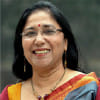
 For all latest news, follow The Daily Star's Google News channel.
For all latest news, follow The Daily Star's Google News channel. 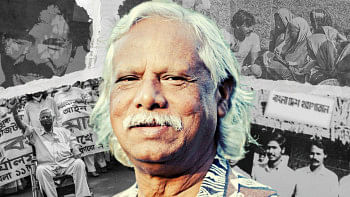
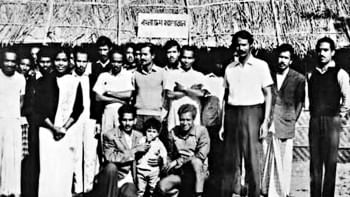


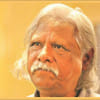


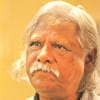


Comments